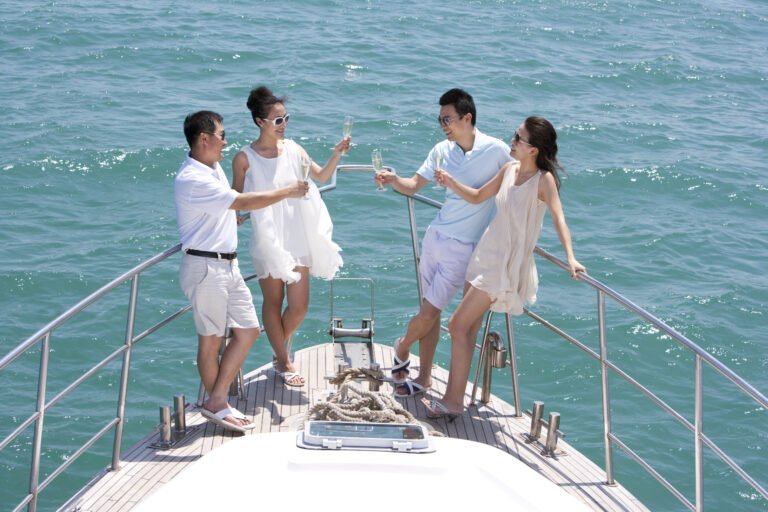Planning an all-inclusive yacht cruise is about more than choosing the right vessel or destination. The timing of your trip can significantly influence your overall experience. Seasons play a major role in yacht availability, sea conditions, and crowd levels at popular ports. Understanding when to book can help you secure the best deals and enjoy the most comfortable sailing conditions. Below, we explore the prime times of year to plan your cruise, weighing the pros and cons of each season so you can make an informed decision.
High season advantages
The high season typically falls during the summer months in Europe (June to August) and the winter holidays in the Caribbean (December to early January). These are the times when destinations like the French Riviera, Amalfi Coast, or St. Barts are buzzing with activity. Choosing to sail during this period ensures you’ll experience the very best weather and the liveliest atmosphere. Waters are generally calm, harbors are full of life, and the social scene onshore is at its peak.
However, popularity comes at a cost. Rates for yacht charters increase substantially in high season, and prime yachts are often booked months in advance. If you’re considering bvi charters around New Year’s or Easter, expect demand to be high and availability limited. That said, for travelers who thrive on energy, social connections, and flawless weather, high season can be the perfect choice despite the high price.
Shoulder season value
For many seasoned travelers, the shoulder season represents the sweet spot. In the Mediterranean, this usually means May to early June and September to October. In the Caribbean, it falls just before and after the winter holidays, from late November to mid-December, and again from mid-January to April. During these windows, the climate remains pleasant, sea conditions are reliable, and marinas are less congested compared to peak season.
The real benefit of shoulder season lies in value and accessibility. Yacht rates are lower, itineraries are more flexible, and you’ll often find that local towns and beaches feel more relaxed. For travelers who want to experience popular destinations without the overwhelming crowds, this period offers balance. It’s also a great opportunity to secure luxury yachts that might be out of reach during high season.
Off-season considerations
Low season varies depending on the region. In the Mediterranean, it stretches from late autumn through winter, while in the Caribbean it aligns with hurricane season (typically June through November). While off-season charters can be significantly cheaper, they come with trade-offs. Weather patterns are less predictable, some restaurants and marinas may be closed, and certain itineraries might be restricted due to rougher seas.
Still, the off-season has its appeal. You can explore destinations at a slower pace, avoid the rush, and experience cultural authenticity that sometimes gets lost during busier months. For adventurers willing to adapt plans and embrace spontaneity, off-season travel offers a unique way to connect with the local character of a destination while keeping costs low.
Booking timelines
Regardless of which season you choose, timing your booking is critical. High season charters should be reserved six to twelve months in advance, especially if you have your eye on a specific yacht or popular holiday week. For shoulder season, three to six months is usually sufficient, though earlier is always safer if you’re flexible about destination. Off-season cruises can sometimes be arranged closer to your departure date, but availability is never guaranteed.
Booking early often comes with added perks, including a wider selection of yachts and more negotiation power on extras. However, last-minute deals occasionally appear in shoulder and off-peak times, especially if operators are keen to fill their calendars. Evaluate your priorities, balance certainty with spontaneity, and plan accordingly.
Wrapping up
The best time to book an all-inclusive yacht cruise ultimately depends on your preferences. If you crave vibrant energy and perfect weather, the high season is worth the investment. For those seeking balance between comfort, price, and atmosphere, shoulder season often delivers the ideal mix. And if adventure and budget are your top concerns, the off-season can provide unexpected rewards. By understanding the advantages of each period and booking with enough lead time, you’ll set yourself up for a memorable experience on the water.

































